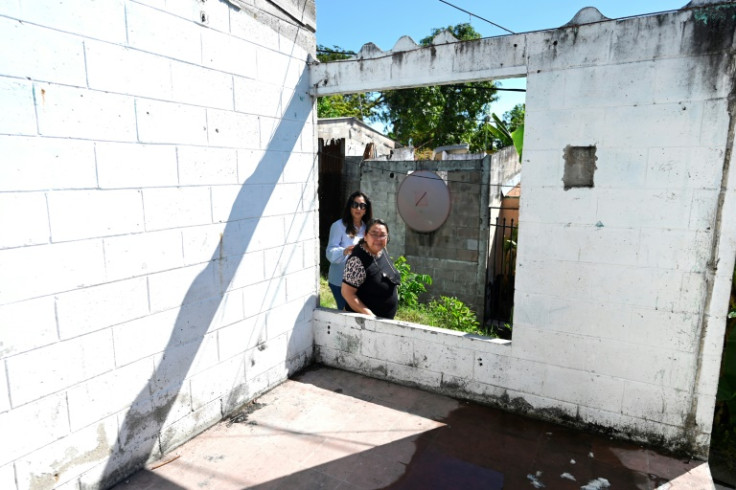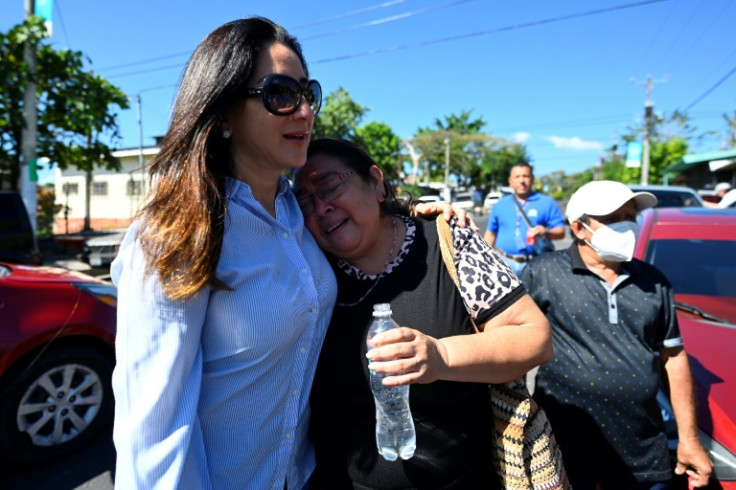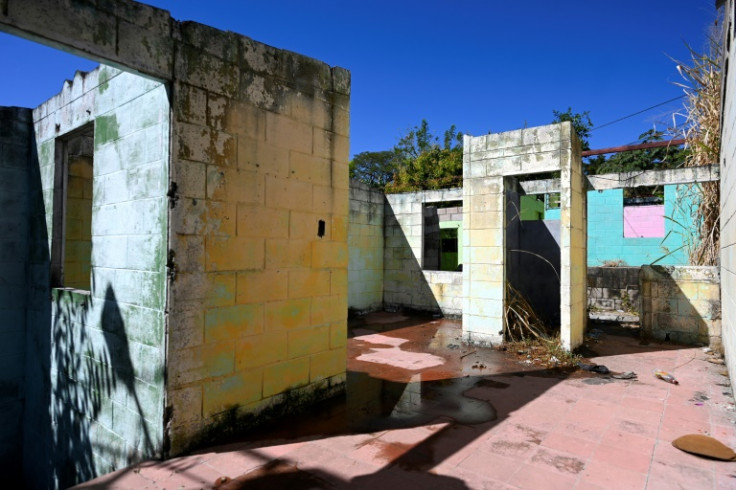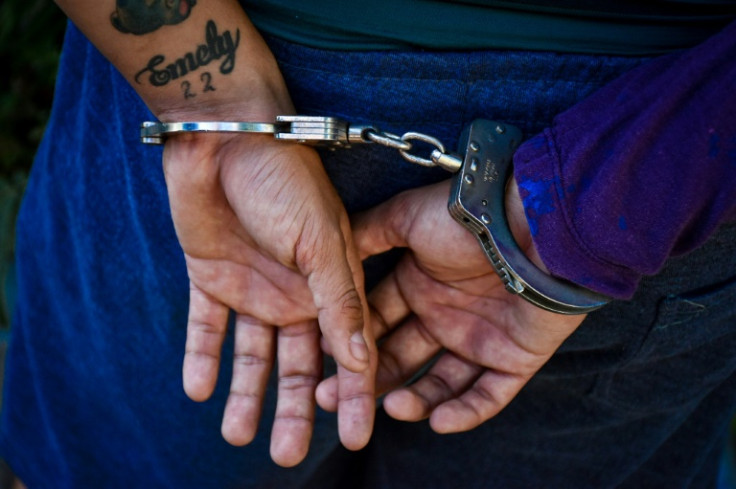Joy As Salvador Families Recover Homes From Gang Control

For two painful decades, going home was not an option for Ana Vilma Cuellar. But at long last, the 62-year-old has recovered her house in La Campanera, a neighborhood on the outskirts of San Salvador that had been completely taken over by armed gangs.
Her husband had bought the property back in 2002, but the couple was never able to live in it.
"It's a joy," said Cuellar, who hopes to finally be able to move in soon.
"I've been through a lot," said the former textile worker. Without access to her own home, she had to rent accommodation in Ilopango, a suburb controlled by a rival gang.
The last time Cuellar tried to visit La Campanera was in 2003, but the bus she was on was shot at by gang members, and several people were injured.
Now, after years of brutal control by the Barrio 18 gang, the small working-class town feels safe again.
Cuellar's return home comes almost a year after President Nayib Bukele launched a frontal "war" against violent gangs he said had control over four fifths of the Central American country.
Up until a month and a half ago, anarchy and fear reigned in La Campanera.
Many families had abandoned their homes, which were later taken over by the Barrio 18 gang. Even municipal cleaning trucks or food delivery motorcycles could not enter the neighborhood, and many homes had illegal electricity and cable TV connections.
The situation in La Campanera was mirrored across the country, where the government estimates at least 6,000 homes had been taken over by gang members.
But everything began to change on December 3, when Bukele ordered thousands of soldiers and police to surround the municipality of Soyapango, where La Campanera is located.
To escape, gang members tore through the walls of many houses and removed numbers that identified them.
As part of the crackdown launched by Bukele in March last year, El Salvador's Congress approved an emergency regime that allows detention without a warrant -- leading to the arrest of some 62,000 suspected gang members. Some 3,000 people have since been released.
On January 12, the legislature extended the state of emergency for another 30 days.
Now that most gang members have either fled La Campanera or been arrested, people are arriving daily to recover their homes. Many were built by the state social fund for housing, which is now facilitating homeowners' return.
Housing Minister Michelle Sol, who is overseeing the recovery of houses in La Campanera, said she was moved by the testimony of dozens of families who for years had been deprived of their homes.
"We are putting an end to forced displacement," Sol said.
The process of recovering homes is ongoing, with 3,400 residences in the capital San Salvador. In La Campanera, 500 homes are being returned.
"The number will continue to increase," the minister added, while inspecting a house that gang members had dismantled, ripping off its doors, windows, the roof and even the toilet.
But the relative peace has come at a high cost in El Salvador, and human rights groups have criticized the state of emergency, citing concern about the powers it grants authorities to make arrests without warrants.
La Campanera resident Maritza Maribel Gutierrez, acknowledged that normality had returned to her neighborhood -- but also noted that there are no young people on the streets anymore.
Everyone "is being held [in prison]," Gutierrez said. Her only son, she said, was detained although he is not a gang member.
She said she hopes her son will be released soon so that he can go back to his job as a driver.
But Bukele's crackdown has widespread popular support among a population long-terrorized by gang violence -- one of the main factors driving migration out of the country.
A survey published last week by the Central American University found that at the end of last year, almost nine out of 10 Salvadorans reported feeling safe.
"Today people can go out freely," Roberto Morales, 55, who survived with his family in La Campanera during the years of gang control, told AFP.
"Everything is going well now...," he said, "the people have returned."



© Copyright AFP {{Year}}. All rights reserved.





















